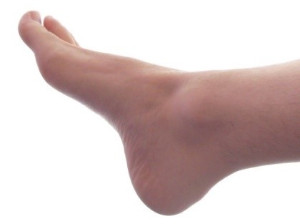 Plantar warts are caused by the human papillomavirus (HPV). This virus thrives in warm, damp environments such as gym showers or other public facilities. In special cases, untreated plantar warts may develop into methicillin-resistant staphylococcus aureus (MRSA). Although sometimes plantar warts may go away on their own, if they are chronic or become painful you should consult with a podiatrist to go over treatment options.
Plantar warts are caused by the human papillomavirus (HPV). This virus thrives in warm, damp environments such as gym showers or other public facilities. In special cases, untreated plantar warts may develop into methicillin-resistant staphylococcus aureus (MRSA). Although sometimes plantar warts may go away on their own, if they are chronic or become painful you should consult with a podiatrist to go over treatment options.
Plantar warts can be very uncomfortable. If you need your feet checked, contact one of our podiatrists from Quality Foot Care Center. Our doctors will assist you with all of your foot and ankle needs.
About Plantar Warts
Plantar warts are the result of HPV, or human papillomavirus, getting into open wounds on the feet. They are mostly found on the heels or balls of the feet.
While plantar warts are generally harmless, those experiencing excessive pain or those suffering from diabetes or a compromised immune system require immediate medical care. Plantar warts are easily diagnosed, usually through scraping off a bit of rough skin or by getting a biopsy.
Symptoms
- Lesions on the bottom of your feet, usually rough and grainy
- Hard or thick callused spots
- Wart seeds, which are small clotted blood vessels that look like little black spots
- Pain, discomfort, or tenderness of your feet when walking or standing
Treatment
- Freezing
- Electric tool removal
- Laser Treatment
- Topical Creams (prescription only)
- Over-the-counter medications
To help prevent developing plantar warts, avoid walking barefoot over abrasive surfaces that can cause cuts or wounds for HPV to get into. Avoiding direct contact with other warts, as well as not picking or rubbing existing warts, can help prevent the further spread of plantar warts. However, if you think you have developed plantar warts, speak to your podiatrist. He or she can diagnose the warts on your feet and recommend the appropriate treatment options.
If you have any questions please feel free to contact our office located in Somerset, NJ. We offer the newest diagnostic and treatment technologies for all your foot and ankle needs.
Read more about All About Plantar Warts